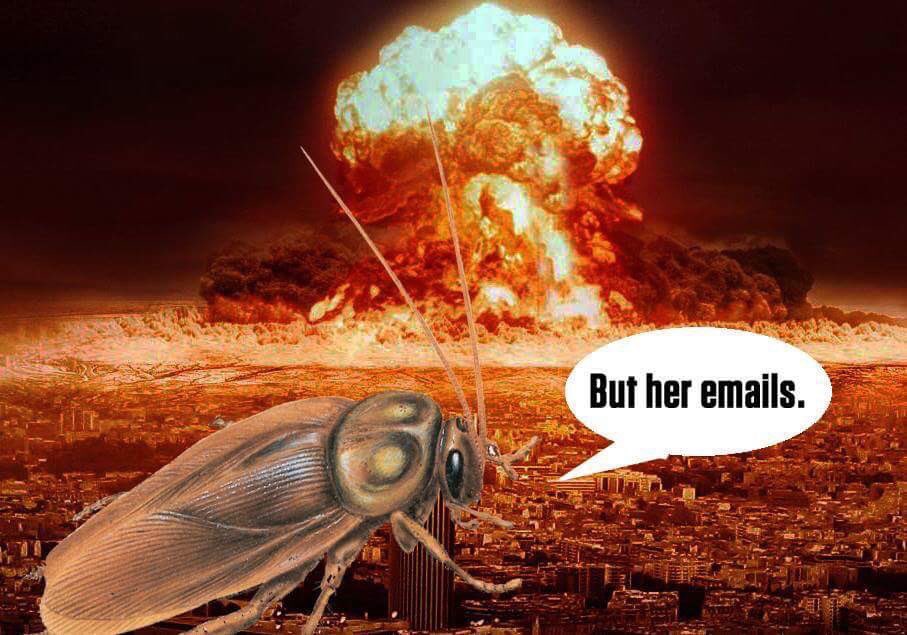After months of resolutely declaring that it cannot and will not tolerate a nuclear-armed North Korea, the US is reportedly planning a "bloody nose" attack to send Pyongyang a message.
The Daily Telegraph cited "well-placed" sources as saying the Trump administration had "dramatically" stepped up preparations for a military response to North Korea's nuclear provocations.
Those possible responses include destroying a launch site before North Korea could test a missile and targeting a stockpile of weapons, according to The Telegraph.
"The Pentagon is trying to find options that would allow them to punch the North Koreans in the nose, get their attention and show that we're serious," a former US security official briefed on policy told The Telegraph.
The report said the Trump administration had the
April 7 strike on a Syrian airfield in mind as a blueprint for the move against North Korea.
When US Navy ships fired 59 Tomahawk cruise missiles at a Syrian airfield, President Donald Trump had the world's support in attacking a nation accused of using chemical weapons on its own people.
Syria's military was already stretched thin fighting a civil war and multiple Islamist terrorist groups. The strike went virtually unpunished.
But that most likely wouldn't be the case with a US strike on North Korea, which has a massive standing army and a military posture geared toward offense.
And there are practical reasons the US can't just blow up a North Korean missile launch site. As Jeffrey Lewis, the director of the East Asia Nonproliferation Program at the Middlebury Institute of International Studies,
said on Twitter, "Mobile missiles don't need launch sites, Donald."(

)
Instead of using designated launch sites, North Korea puts its missiles on mobile launchers, some of which have treads to launch from off-road locations.
Lately, North Korea has varied its launch sites, most likely to make it harder for the US to track and possibly intercept missiles.
The US does have tools to give North Korea a "bloody nose."
Short of blowing up a launch site, which could kill launch officers — and possibly Kim Jong Un, as he usually watches launches from close by — the US could attempt to intercept North Korea's next missile launch.
The US and allies have not only
increased missile-defense deployments to the region — they've also deployed F-35 stealth fighters that have some capability to shoot down missile launches.
Submarines like the
USS Michigan, which has frequently visited South Korea in recent months, could send a volley of cruise missiles at any military site in North Korea without ever surfacing.
Forward-deployed Aegis guided-missile destroyers in the US Navy
could intercept the missiles as they launched, Sid Trevethan, a former US Navy specialist in ballistic missile defense and electronic countermeasures, told Business Insider.
Secretary of Defense James Mattis recently said that though North Korea's last ballistic missile test demonstrated a very long range, he's
not convinced the entire missile system works. US policy on North Korea explicitly calls for denying it the means to perfect its missile program.
Destroying North Korean missiles during launch would rob Pyongyang of valuable testing and could ensure it
never tests an ICBM at full range, meaning it could never be fully confident in its ability to hit the US.
The US knows what capabilities it has to counter North Korea, but not how North Korea would respond.
If the US were to send Tomahawk missiles toward a launch site, North Korea might interpret the incoming salvo as targeting its supreme leader and being an outright act of war.
Immediately, Kim could order North Korea's
massive artillery installations to open fire on Seoul, potentially killing tens of thousands within hours.
The bloody-nose scenario comes down to a gamble on whether North Korea is ready to enter all-out war over a limited strike.
North Korea has sunk US and South Korean ships without proportionate punishment in the past. It has shelled South Korean islands, captured Americans and South Koreans, and killed civilians without US retaliation.
North Korea, despite having the weaker hand militarily, has often gambled that the US and South Korea value prosperity and peace — albeit an uneasy peace — too much to respond tit-for-tat to its military provocations.
A US attack on North Korea might just call a long-standing bluff and show that Pyongyang's bark is worse than its bite — or it might unleash nuclear war.

)


 He is not that stupid to pull this off is he??
He is not that stupid to pull this off is he??



 That would be disastrous for the USA.
That would be disastrous for the USA.
 now if only they can make it look like an "accident", install a puppet and get mineral rights and kickbacks off those sales...
now if only they can make it look like an "accident", install a puppet and get mineral rights and kickbacks off those sales...